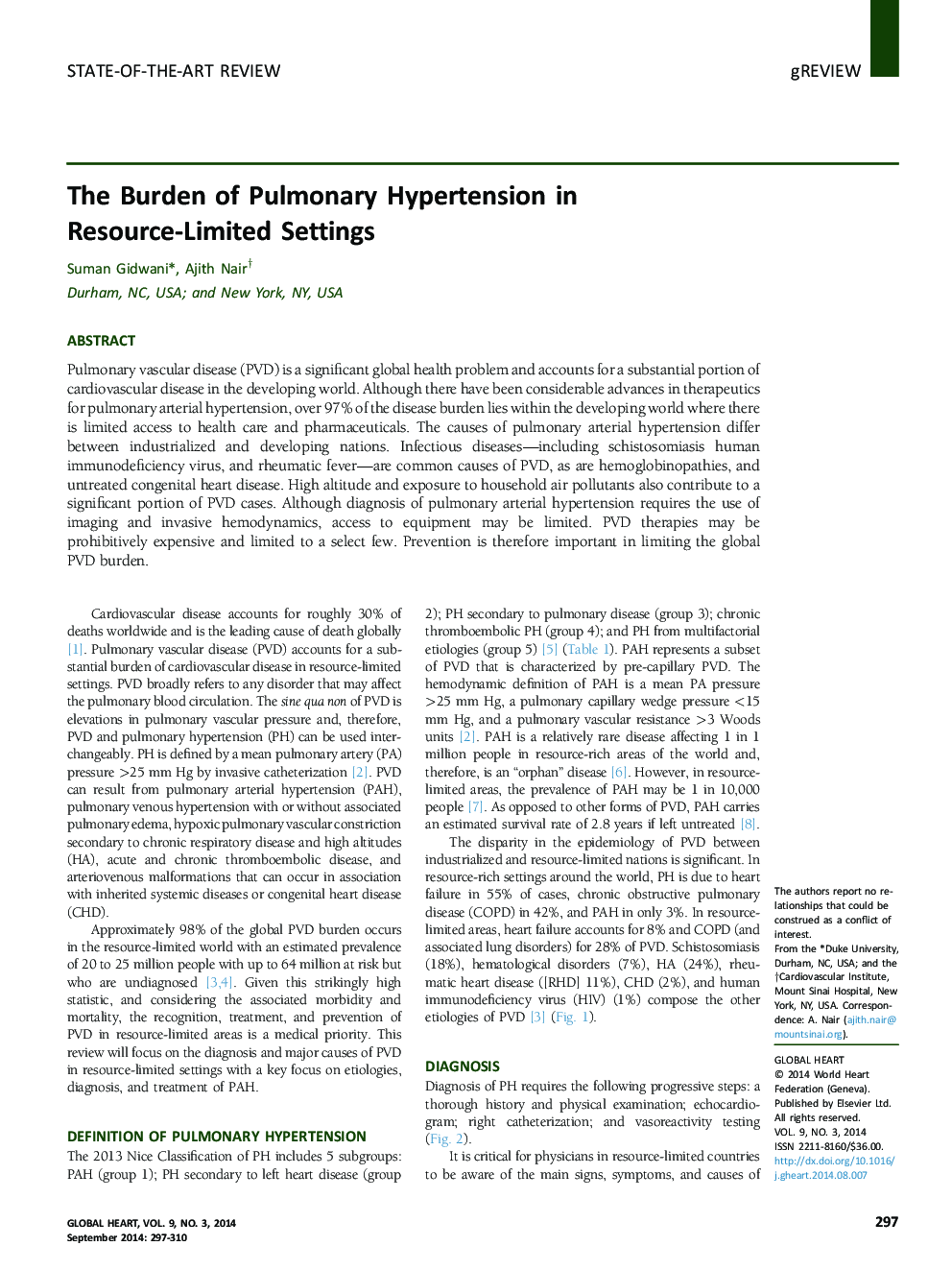| Article ID | Journal | Published Year | Pages | File Type |
|---|---|---|---|---|
| 2916434 | Global Heart | 2014 | 14 Pages |
•The burden of pulmonary vascular disease (PVD) in the developing world is described.•The etiologies of PVD are detailed.•The evaluation and treatment of PVD are detailed.•An emphasis is placed on disease awareness and prevention.
Pulmonary vascular disease (PVD) is a significant global health problem and accounts for a substantial portion of cardiovascular disease in the developing world. Although there have been considerable advances in therapeutics for pulmonary arterial hypertension, over 97% of the disease burden lies within the developing world where there is limited access to health care and pharmaceuticals. The causes of pulmonary arterial hypertension differ between industrialized and developing nations. Infectious diseases—including schistosomiasis human immunodeficiency virus, and rheumatic fever—are common causes of PVD, as are hemoglobinopathies, and untreated congenital heart disease. High altitude and exposure to household air pollutants also contribute to a significant portion of PVD cases. Although diagnosis of pulmonary arterial hypertension requires the use of imaging and invasive hemodynamics, access to equipment may be limited. PVD therapies may be prohibitively expensive and limited to a select few. Prevention is therefore important in limiting the global PVD burden.
